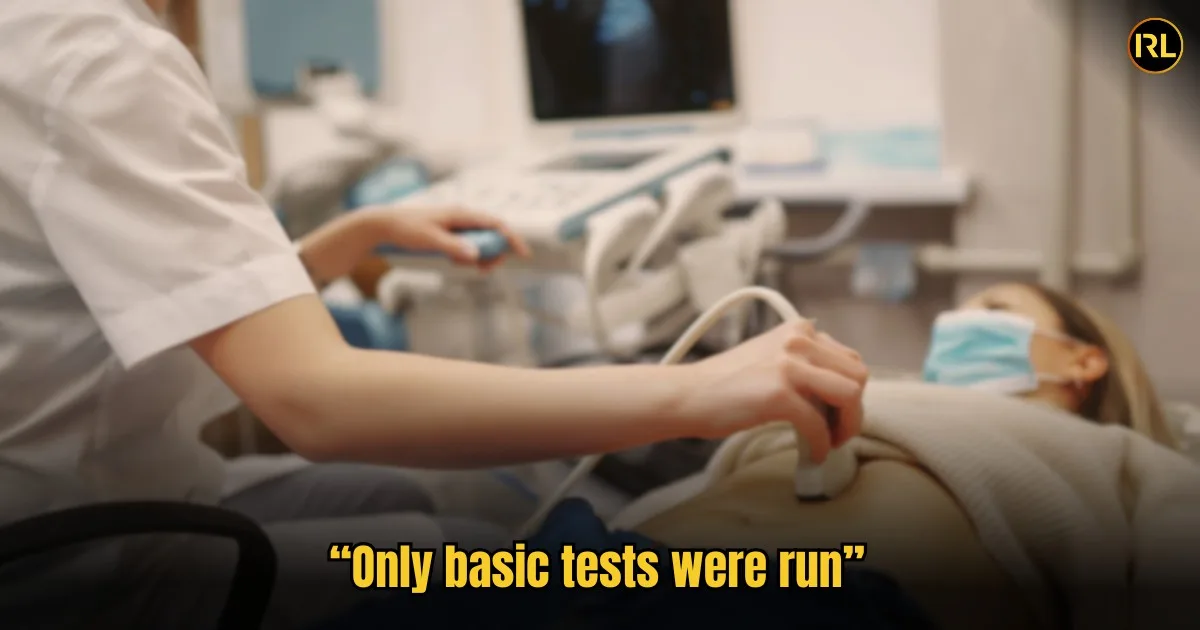This story is about a man who says he now distrusts the M’sian medical system after his wife tragically passed away due to an undiagnosed miscarriage.
Two years ago, I lost my wife and unborn baby due to medical negligence.
I still remember how it began. That quiet evening, we had been curled up on the couch, Sharifah resting her hand on her belly as we watched a movie. Then, she winced in discomfort.
At first, I thought it was nothing, maybe the baby was kicking, but there was a hesitation in her voice as she admitted something felt wrong.
We left for the hospital that night, clinging to the hope that everything would be fine. It was the last time I’d see her smile.
Dismissed as anxiety
It was over 6 hours before a doctor finally saw us. He was brisk, spending no more than five minutes speaking to me while ignoring Sharifah almost entirely.
Her concerns were dismissed as “first-time parental anxieties,” and only a few basic tests were run before we were sent home with assurances that everything was normal. I hated how little he cared, but I let it go. I shouldn’t have.
Sharifah’s mild discomfort worsened quickly. Within two days, she developed a fever, her body racked with chills and aches. Then, during dinner, she collapsed.
I called an ambulance, my heart hammering in my chest. When they took us to the same hospital that had sent us away, my fear turned to dread.
The Diagnosis That Came Too Late
She was admitted to the ICU, and I held her hand as they ran more tests. It was there that another doctor, one with kinder eyes but a grim expression, explained the truth.
My baby had died in the womb, and the infection had spread, poisoning Sharifah’s blood. Sepsis, he called it.
Medical intervention came too late. Minutes after sunrise, I held her hand as her chest rose one final time and then fell still.
A Home Frozen in Time
I visit their graves regularly, and the plot next to theirs, I purchased for myself. I live in the house we bought together, in SS18, with a park across the street.
The furniture remains as Sharifah liked it, the house meticulously clean. But the nursery, the half-painted room meant for the baby, remains untouched. I never finished it. I never let anyone else finish it. It’s the corpse of a dream that died with them.
The rest of the house is much the same: a shrine to a life that could have been. Every chair, every photograph, everything is a memory that cuts as deeply as it comforts. I can’t bring myself to sell the house. It’s all I have left to remind me of better days.
Hollow Justice
I wanted justice for them. My lawyer warned me that a lawsuit would be long, grueling, and endlessly delayed by the pandemic. He was right: other cases are still languishing in court.
So I signed the settlement agreement: RM4.5 million to keep me from revealing which hospital and doctor made the mistake.
It felt like an insult: Might as well have been RM4.50 for it didn’t bring me any peace. The money couldn’t replace the suffering and loss I felt.
Living with Grief, Day by Day
Grief is a strange companion. It doesn’t fade or weaken. It simply changes shape, taking on a quiet, insistent presence in the background of every moment.
Some mornings, I feel like I can take a step forward. On other days, I can barely get out of bed. But I do because I owe it to Sharifah and the baby we never met to keep living. To honour their memory, even when it hurts.
It took many years, but I no longer blame myself entirely for what happened, not anymore. Through endless nights staring into the dark, I’ve come to accept that I couldn’t have saved them.
But that doesn’t stop the “What-ifs.” What if I had shouted louder, demanded better care, refused to leave? Would Sharifah still be here? Would our child?
Now, I don’t trust M’sian doctors anymore.
This experience has left me disillusioned with the healthcare system in Malaysia. They were supposed to protect us, to heal us. We were dismissed instead of listened to. The system is overworked, understaffed and completely lacking in accountability.
I will not rely on a public system that catastrophically failed my family. I don’t believe this system will change anytime soon.
For the Malaysians still relying on it, please fight harder, shout louder to be heard, and never let them dismiss your concerns and doubts.
There’s no happy ending to this story. Medical negligence robbed me of my family, and no amount of money or legal acknowledgement can fill the void they left behind.
Sharifah and our baby deserved better. Although I can’t bring them back, I carry their memories with me every day, waiting for the moment when I can finally join them.
What do you think of this story?
Let us know in the comments!
Submit your story to ym.efillaerni@olleh and you may be featured on In Real Life Malaysia.
Read also: I Work at a Public M’sian Hospital, Here’s The Real Reason Doctors Are Leaving
I Work at a Public M’sian Hospital, Here’s The Real Reason Doctors Are Leaving
More from Real People
‘A RM100 fee cost a company 5 years of revenue’ shares M’sian
This story is about a Malaysian who learned that bureaucracy can be defeated simply by not arguing with it.A billing …
‘I quiet-quit, upskilled, and tripled my salary,’ shares M’sian engineer
This story is about a Malaysian who learned that loyalty without leverage leads nowhere in the corporate world.After years of …
‘I did everything right, and it still wasn’t enough’ shares M’sian graduate
This story is about a Malaysian graduate navigating big dreams in a job market where a degree no longer guarantees …
















